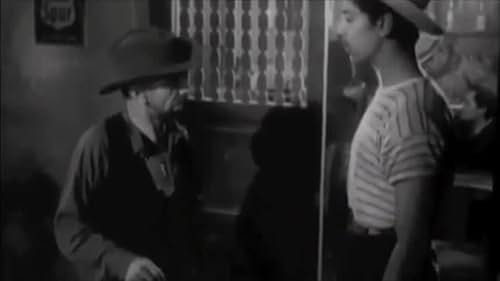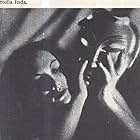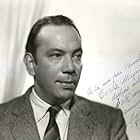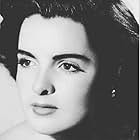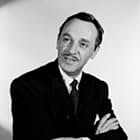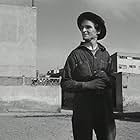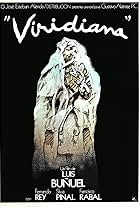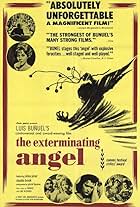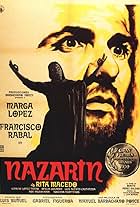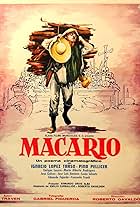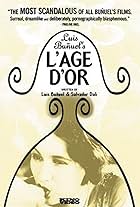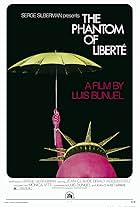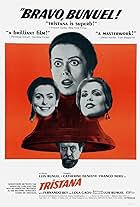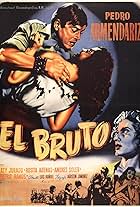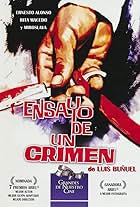IMDb RATING
8.2/10
22K
YOUR RATING
A group of juvenile delinquents live a violent and crime-filled life in the festering slums of Mexico City, as the morals of young Pedro are gradually corrupted and destroyed by the others.A group of juvenile delinquents live a violent and crime-filled life in the festering slums of Mexico City, as the morals of young Pedro are gradually corrupted and destroyed by the others.A group of juvenile delinquents live a violent and crime-filled life in the festering slums of Mexico City, as the morals of young Pedro are gradually corrupted and destroyed by the others.
- Nominated for 2 BAFTA Awards
- 12 wins & 6 nominations total
Jesús García
- El padre de Julián
- (as Jesús García Navarro)
Sergio Virel
- Miembro pandilla
- (as Sergio Villarreal)
Ernesto Alonso
- La Voz al Comienzo de la Película
- (uncredited)
Victorio Blanco
- Vagabundo
- (uncredited)
Rubén Campos
- Un asilado
- (uncredited)
Lupe Carriles
- Doña Rufinita, vecina
- (uncredited)
Daniel Corona
- Un golfo
- (uncredited)
Storyline
Did you know
- TriviaWhen it was released in Mexico in 1950, its theatrical commercial run only lasted for three days due to the enraged reactions from the press, government, and upper and middle class audiences.
- GoofsIn a shot of Pedro's corpse, the victim can clearly be seen breathing.
- Quotes
Don Carmelo, el ciego: I hope they'll kill every one of them before they born!
- Alternate versionsSPOILER: In the director's cut, Pedro is stabbed to death by Jaibo, and Meche and her grandfather dump his body outside the town. The blind man denounces Jaibo to the police, who shoot Jaibo when fleeing arrest. Pedro's mother is left alone alone, in despair. A shorter "happy" ending, never used by the director, was filmed probably to accommodate censorship authorities or the sensibilities of the distributors: Jaibo dies in an accidental fall when he's fighting Pedro, who retrieves the stolen banknote from him. Pedro has a short conversation with Ojitos, and then returns to the reformatory farm-school (to a loud musical crescendo).
Featured review
After his exile from his native Spain, director Luis Bunuel moved to Mexico in 1946, gaining citizenship in 1949. It was here where he would make his more generic films (by his standards), as he honed his own directorial skill while never straying too far from his surrealistic background. After the success of his comedy The Great Madcap (1949), he was commissioned by producer Oscar Dancigers to make a serious film about child poverty in Mexico City, and out of it came Los Olvidados, or The Young and the Innocent, to give it it's American title. Bunuel apparently spent months disguised as a homeless amongst the poverty- stricken children of the slums in order to research, and if that tale is true, it certainly came off, as Los Olvidados is one of the best and most realistic depictions of the innocent turning to crime in a fit of desperation.
The film follows three children in the same slum. Pedro (Alfonso Mejia) is a young tearaway who wants to change his ways and work, in order to help out his mother who neglects him due to her constant work. 'Little Eyes' (Mario Ramirez) has been abandoned by his father, and is adopted by the blind beggar Don Carmelo (Miguel Inclan), a bitter man who frequently voices his opinions on the young criminals of the city. El Jaibo (Robert Cobo) has just been released from prison and immediately sets about gaining revenge of the boy he thinks ratted him out. Jaibo and Pedro corner the boy, only for Jaibo to bludgeon him to death, and the two boys flee. Pedro struggles to keep himself out of trouble and leaves home after being accused of stealing a knife, only to find his and Jaibo's paths repeatedly crossing.
At its heart, this is pure neo-realism, sharing its tone most obviously with Vittorio de Sica's masterpiece The Bicycle Thieves (1948) in exposing poverty and class divide as the main cause of criminality, due to the ill education and the hopelessness of the young. Although, out of nowhere, comes a surrealistic dream sequence so beautiful, and so haunting, that you know you're watching Bunuel, and his artistic creativity seems to bulge from the screen. Best known for his mocking of the upper-classes (the bourgeois were clearly as fascinating to Bunuel as they were repugnant), here he stays in the slums, promoting as much sympathy for its filthy lead characters as hatred.
Jaibo is a true monster, raised without parents, he bullies his way through life, grasping any opportunity that presents itself (he even manages to seduce Pedro's lonely and overworked mother, and rob a legless man). It is Pedro who is the beating heart of the film, especially when he leaves home and we witness the state of the lower- classes from his eyes and how they are viewed (in one powerful sequence, an upper class man obviously propositions him for sex, but we only see their exchange, as we watch them through a window). Bunuel then manages to deliver not one, but two sensational endings, that manage to move and shock as much as the famous and upsetting climax to Bicycle Thieves. Bunuel would go to France to create his greatest works, but Los Olvidados displays many of the attributes that made Bunuel one of the most important directors in the history of film, as well as being a great film in its own right.
www.the-wrath-of-blog.blogspot.com
The film follows three children in the same slum. Pedro (Alfonso Mejia) is a young tearaway who wants to change his ways and work, in order to help out his mother who neglects him due to her constant work. 'Little Eyes' (Mario Ramirez) has been abandoned by his father, and is adopted by the blind beggar Don Carmelo (Miguel Inclan), a bitter man who frequently voices his opinions on the young criminals of the city. El Jaibo (Robert Cobo) has just been released from prison and immediately sets about gaining revenge of the boy he thinks ratted him out. Jaibo and Pedro corner the boy, only for Jaibo to bludgeon him to death, and the two boys flee. Pedro struggles to keep himself out of trouble and leaves home after being accused of stealing a knife, only to find his and Jaibo's paths repeatedly crossing.
At its heart, this is pure neo-realism, sharing its tone most obviously with Vittorio de Sica's masterpiece The Bicycle Thieves (1948) in exposing poverty and class divide as the main cause of criminality, due to the ill education and the hopelessness of the young. Although, out of nowhere, comes a surrealistic dream sequence so beautiful, and so haunting, that you know you're watching Bunuel, and his artistic creativity seems to bulge from the screen. Best known for his mocking of the upper-classes (the bourgeois were clearly as fascinating to Bunuel as they were repugnant), here he stays in the slums, promoting as much sympathy for its filthy lead characters as hatred.
Jaibo is a true monster, raised without parents, he bullies his way through life, grasping any opportunity that presents itself (he even manages to seduce Pedro's lonely and overworked mother, and rob a legless man). It is Pedro who is the beating heart of the film, especially when he leaves home and we witness the state of the lower- classes from his eyes and how they are viewed (in one powerful sequence, an upper class man obviously propositions him for sex, but we only see their exchange, as we watch them through a window). Bunuel then manages to deliver not one, but two sensational endings, that manage to move and shock as much as the famous and upsetting climax to Bicycle Thieves. Bunuel would go to France to create his greatest works, but Los Olvidados displays many of the attributes that made Bunuel one of the most important directors in the history of film, as well as being a great film in its own right.
www.the-wrath-of-blog.blogspot.com
- tomgillespie2002
- Aug 26, 2012
- Permalink
- How long is The Young and the Damned?Powered by Alexa
Details
Box office
- Gross worldwide
- $134,918
- Runtime1 hour 20 minutes
- Color
- Aspect ratio
- 1.37 : 1
Contribute to this page
Suggest an edit or add missing content

Top Gap
By what name was The Young and the Damned (1950) officially released in India in English?
Answer
